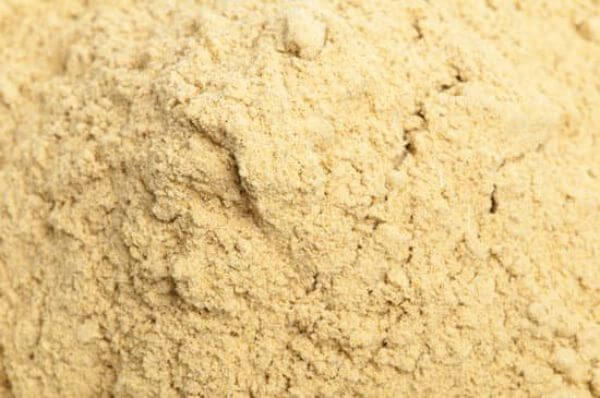Bone broth has gained significant popularity in recent years for its numerous health benefits and rich flavor. Traditionally simmered for hours to extract the nutrients from bones, it has become a staple in many diets.
However, as the demand for convenience continues to grow, bone broth powders have emerged as a convenient alternative to the time-consuming process of making liquid broth.
In this article, we’ll dive into the bone broth powder vs. liquid debate, exploring the important aspects that can help you make an informed decision.

Table of Contents
Convenience
When it comes to convenience, bone broth powder takes the crown. Liquid bone broth requires preparation time, including sourcing high-quality bones, simmering for hours, and straining the liquid. On the other hand, bone broth powder can be easily mixed with water or added to your favorite recipes, making it a time-saving option for busy individuals.
Nutrient Content
Both bone broth powder and liquid offer a range of beneficial nutrients. They are rich in collagen, gelatin, amino acids, minerals, and other essential components. However, some argue that the liquid form may have a slight advantage in terms of nutrient availability. The slow simmering process in liquid broth allows for the extraction of a broader range of nutrients compared to the dehydration process involved in making powder. Nevertheless, high-quality bone broth powders can still retain a significant portion of the essential nutrients.

Click Here to Shop For The Best Bone Broth on The Market!
Portability
One of the key advantages of bone broth powder is its portability. Whether you’re traveling or need a quick boost of nutrients at the office, bone broth powder can be conveniently packed in a small container or single-serve packets. It eliminates the need for refrigeration and can be easily mixed with hot water wherever you go. Liquid bone broth, on the other hand, requires proper storage and may not always be easily accessible when you’re on the move.
Flavor and Culinary Versatility
While both forms of bone broth offer a savory taste, some argue that liquid broth tends to have a richer and more complex flavor profile. The slow cooking process allows the flavors to develop and deepen, resulting in a more authentic and robust taste. However, bone broth powders have come a long way in terms of taste, with many brands adding spices and herbs to enhance the flavor. Additionally, powder form offers versatility in incorporating bone broth into various recipes, such as soups, stews, smoothies, and sauces.
Quality and Sourcing
The quality of the bones used in making bone broth significantly impacts its nutritional value. When purchasing liquid broth, it’s essential to source bones from organic, pasture-raised animals to ensure a high-quality product. Similarly, when selecting bone broth powder, opt for brands that use bones from humanely raised animals and employ gentle processing methods to retain the nutrients. It’s crucial to read labels and choose products that are free from additives, preservatives, and artificial flavors.
Cost
Cost considerations play a role in any food choice. Liquid bone broth, especially if made at home, can be more cost-effective as it requires minimal ingredients, mainly bones and water. However, commercially available liquid bone broth can be quite expensive, especially high-quality and organic options. Bone broth powder, while generally more expensive per serving, offers the advantage of reduced waste and longer shelf life, making it a more economical choice in the long run.
Bone Broth Powder vs. Liquid
| Aspect | Bone Broth Powder | Liquid Bone Broth |
|---|---|---|
| Convenience | High | Lower |
| Nutrient Content | Retains essential nutrients, but may have slight variation in availability | High nutrient availability due to slow simmering process |
| Portability | Highly portable, can be easily mixed with water or added to recipes | Requires proper storage, not as portable as powder |
| Flavor and Culinary Versatility | Improved taste with added spices and herbs, versatile in various recipes | Richer, more complex flavor due to slow cooking process, traditional culinary experience |
| Quality and Sourcing | Choose high-quality brands with humanely raised animals and gentle processing methods | Source organic, pasture-raised bones for best quality |
| Cost | More expensive per serving, but reduced waste and longer shelf life | Can be cost-effective if made at home, commercial options can be expensive |
Conclusion
Choosing between bone broth powder and liquid boils down to personal preference, lifestyle, and specific needs. Bone broth powder offers convenience, portability, and culinary versatility, making it an excellent option for those with busy schedules or on-the-go lifestyles. Liquid bone broth, on the other hand, provides a rich and authentic flavor experience, with a potentially broader nutrient profile. It requires more time and effort to prepare but can be rewarding for those who enjoy the process of slow cooking.
Ultimately, the decision between bone broth powder and liquid depends on your priorities. If convenience and portability are essential to you, bone broth powder is an excellent choice. It allows you to enjoy the benefits of bone broth without the time-consuming preparation. It’s perfect for individuals who lead busy lives or frequently travel.
On the other hand, if you prioritize the rich and authentic flavor of bone broth and enjoy the traditional cooking process, liquid bone broth might be more appealing. It allows you to control the ingredients and flavors and offers a more satisfying culinary experience.
Regardless of your choice, it’s crucial to prioritize the quality and sourcing of the bones used. Opt for organic, pasture-raised, and humanely raised animal bones to ensure the highest nutritional value and ethical considerations. Read labels carefully and choose products that are free from additives, preservatives, and artificial flavors.
It’s also worth noting that both bone broth powder and liquid can be incorporated into various recipes and used as a base for soups, stews, sauces, or even added to smoothies for an extra nutritional boost. Experimenting with different flavors and combinations can add diversity to your diet and enhance your culinary experience.
In conclusion, the bone broth powder vs. liquid debate is a matter of personal preference, convenience, and specific needs. Bone broth powder offers convenience, portability, and ease of use, while liquid bone broth provides a rich, authentic flavor and potentially broader nutrient availability. Consider your lifestyle, taste preferences, and desired nutritional benefits when making your choice. Whichever option you choose, incorporating bone broth into your diet can be a valuable addition to support overall health and well-being.
